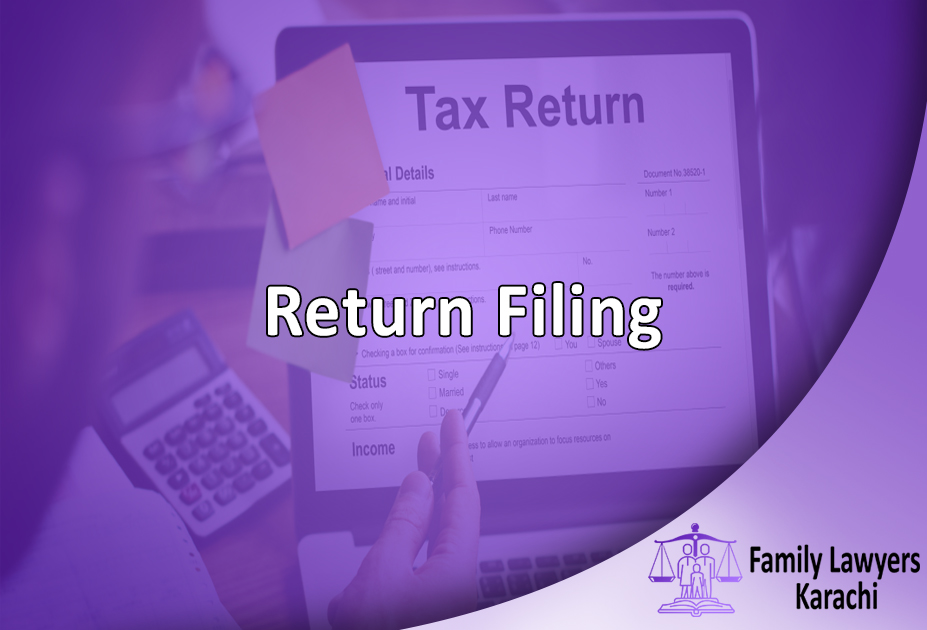Taxation
Return Filing

FILING INCOME TAX RETURN in Pakistan
What Is Income Tax?
Income tax is a government-imposed tax imposed. In Pakistan, it is applied to the income earned by individuals, businesses, and other entities in the country. The tax is levied on both earned income (e.g., salaries, wages, and business profits) and unearned income (e.g., interest,
dividends, and capital gains).
The income tax system in Pakistan is regulated by the Federal Board of Revenue (FBR), which is responsible for collecting and enforcing tax laws in the country. The FBR sets the tax rates and rules and is also responsible for processing tax returns and auditing taxpayers to ensure compliance with tax laws.
Why Is Filing Income Tax Returns Important?
Under the Income Tax Ordinance 2001, it is mandatory for individuals, businesses, and organisations to file their income tax returns each year, regardless of whether or not they have taxable income. Failing to file tax returns can result in penalties and fines, including interest charges on unpaid taxes. These penalties can accumulate and become a significant financial burden for taxpayers.
Filing income tax returns can help individuals and businesses build a credit history and establish their creditworthiness. This is particularly important for
those who may need to access credit in the future, such as when applying for loans, credit cards, or other financial products. Furthermore, filing tax returns is required to access certain government benefits and subsidies, such as the Benazir Income Support Program, which provides financial assistance to low-income households.
Income tax revenue funds important public services and infrastructure projects, including healthcare, education, and transportation. By filing tax returns, taxpayers contribute to the development of their communities and country.
Now you can easily file your income tax returns through the online portal of FBR. Below are the steps that will make the process easier for you.
1- File your income tax returns by logging into your Iris account using your specific username and password.
2-If you have forgotten your password, then click on the ‘Forgot password’ button to restore it.
3-After logging in, press the ‘Declaration’ menu atop the Iris portal.
4-Under Forms select the tab that states ‘114(1) Return of Income Filed Voluntarily for 1 Year)’
5-Now press the Period tab. Here you can enter your Tax year
6-A page will pop up. Here you must press the Employment section and select the salary tab.
7-Now you are required to enter your annual income in salary in the Total Amount section
8-If a certain amount of your salary is exempted from taxation, mention this under the heading ‘Amount exempt from tax.’
9-After completing, click on the Calculate button
Make sure you have provided accurate total tax, the amount exempt from taxation, and the subject to final tax in input fields.
WHAT DOCUMENTS ARE REQUIRED:
1-FOR A SALARIED PERSON:
1-Tax Deduction Certificate from the employer.
2-Bank Account Statement
3-List of Personal Assets with their Value of Purchase.
4-Bank loan and other liabilities.
5-Utility bill in your name.
2-FOR BUSINESS INDIVIDUALS:
1-Tax Deduction Certificate from Companies/banks / third parties.
2-Summary of net sales invoices
3-Summary of expenses in business
4-Bank Statement
5-Detail of Business Assets
6-List of Personal Assets
7-Utility bill under the name of business or tax filer
